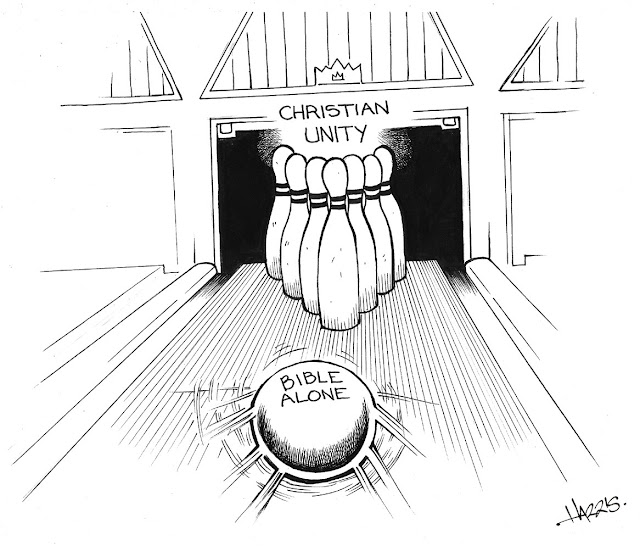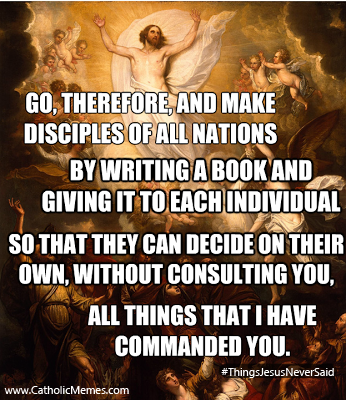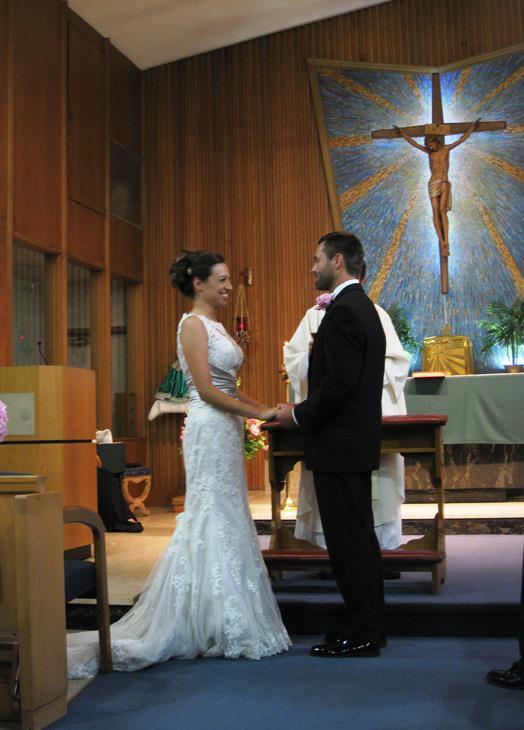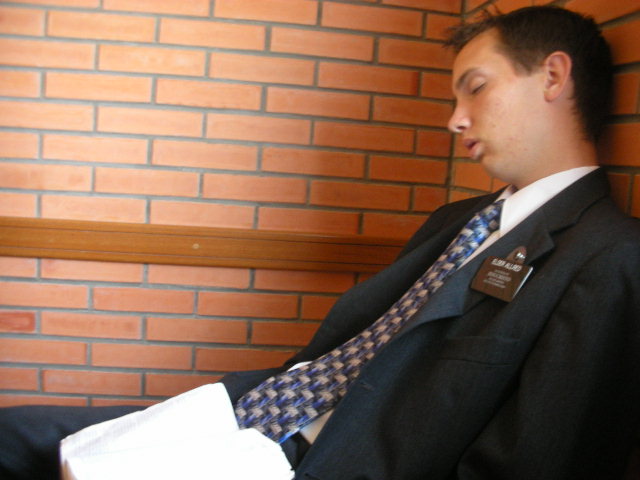Bible Alone? Part 4
Over the last few days I’ve been looking at the subject of Sola Scriptura. Today I would like to discuss the alternative to Sola Scriptura which I realized made more sense of both history and the Biblical data…
The Alternative: Apostolic Authority
Ironically, the answer itself was in Scripture. After the Ascension, writing the New Testament wasn’t the priority because it wasn’t what Jesus commanded the Apostles to do. At the Great Commission Jesus told His disciples to “teach” all nations what He had taught them (as opposed to write a book). If you wanted to know the truth in c. 30AD you would go to Jesus. Who would you go to after the Ascension? You would go to the Apostles He taught and commissioned. It was this living Tradition that sustained the Church – primarily by orally passing on to others what Jesus had taught. Jesus wanted to found a Church, not a book club.
In the Book of Acts, when there was a disagreement over the question of Gentile circumcision, the Christians didn’t use Scripture to decide the answer, but called a Church Council. I could only think of one Church today which still calls [Ecumenical] councils to resolve matters of doctrine and practice…
The more I read Scripture, the clearer it became that the Early Church was one which exercised authority (1 Corinthians 16:16, Hebrews 13:17) given to her by Christ – to forgive sins, no less! Even in my most anti-Catholic moments I could still clearly see that Matthew 16 showed Christ giving Peter a special authority. I could only think of one Church today which claimed to still have that same authority passed on from Peter….
“If a man does not hold fast to this oneness of Peter, does he imagine that he still holds the faith? If he deserts the Chair of Peter upon whom the Church was built, has he confidence that he is in the Church?” – St. Cyprian (A.D. 251)


 I saw this a while back and it just made me cringe. The ladies in this video say so many things which make me sigh deeply.
I saw this a while back and it just made me cringe. The ladies in this video say so many things which make me sigh deeply.
